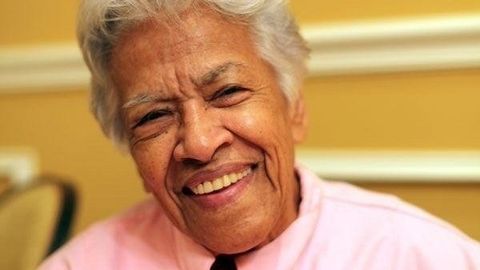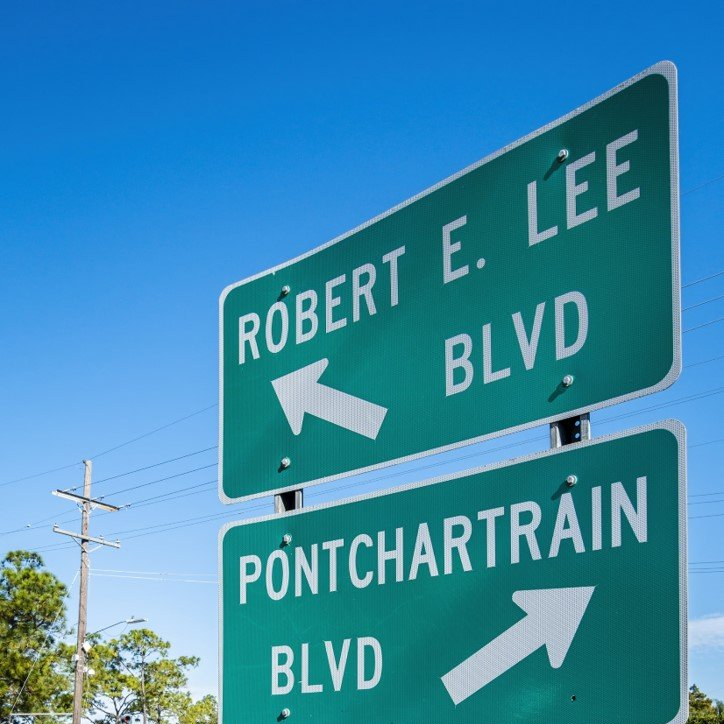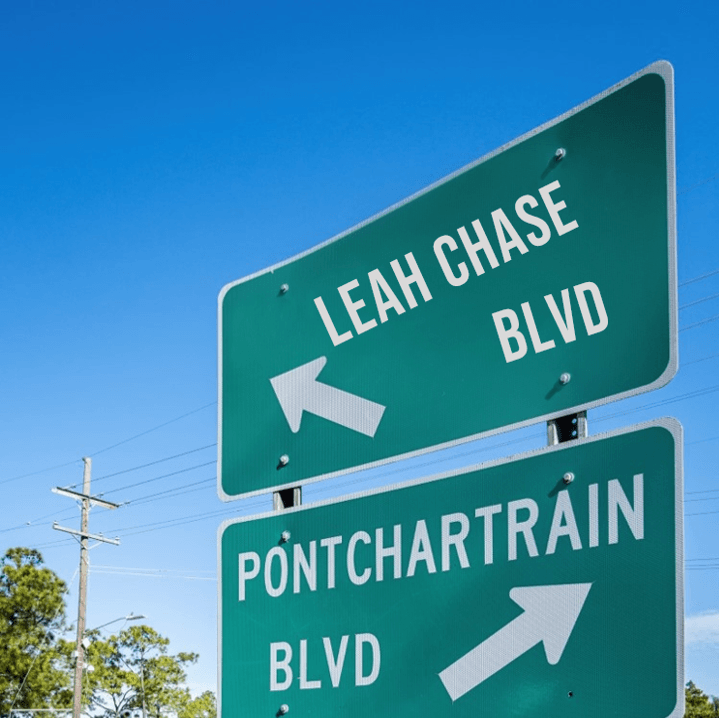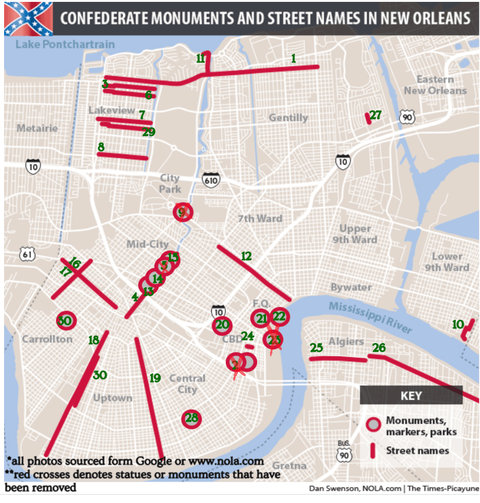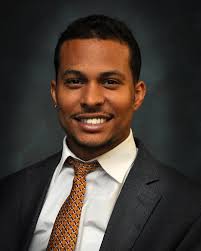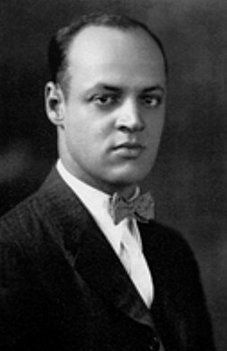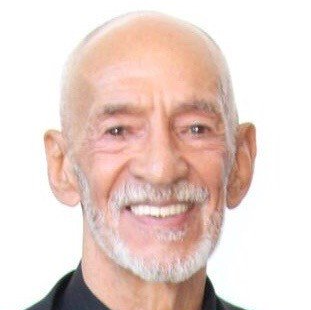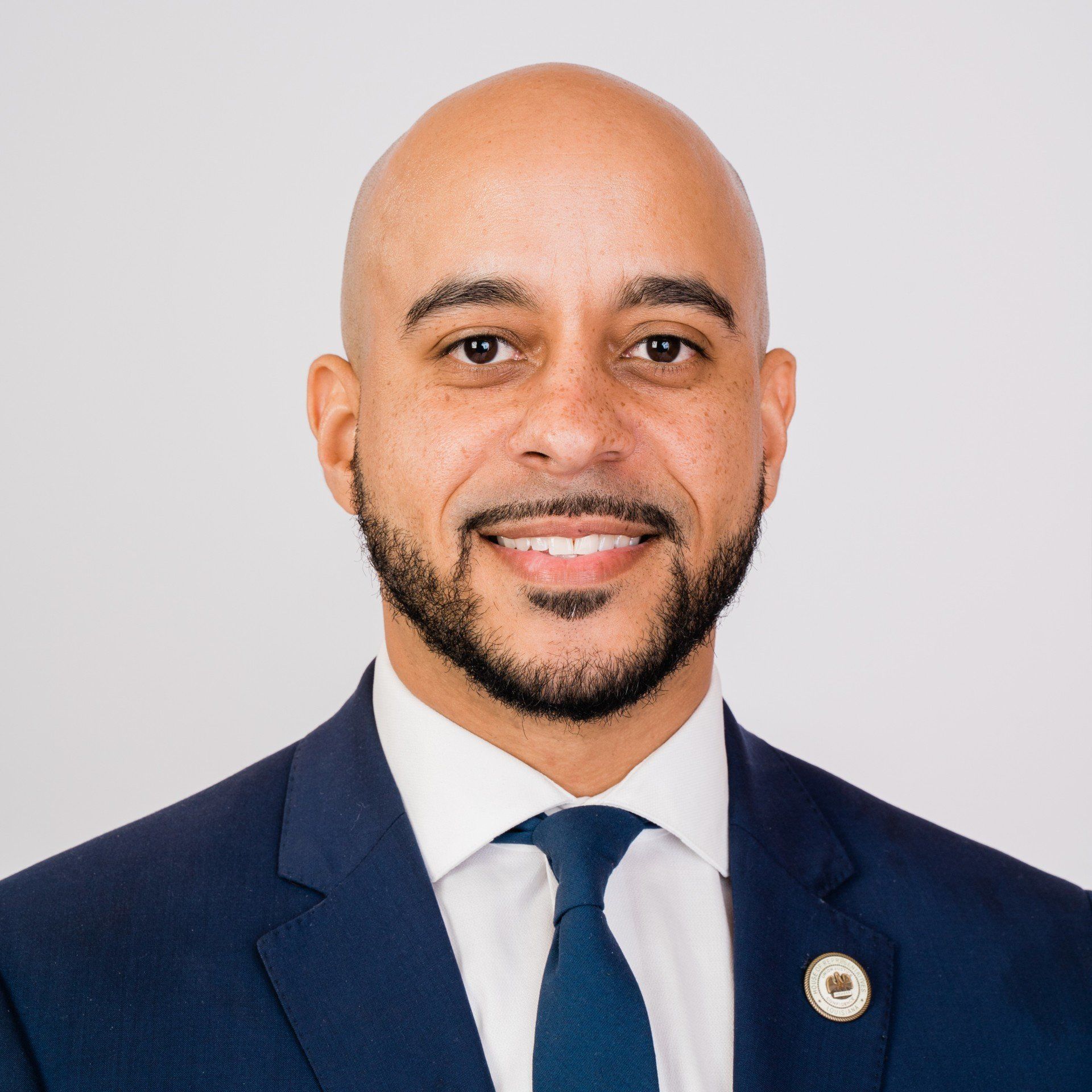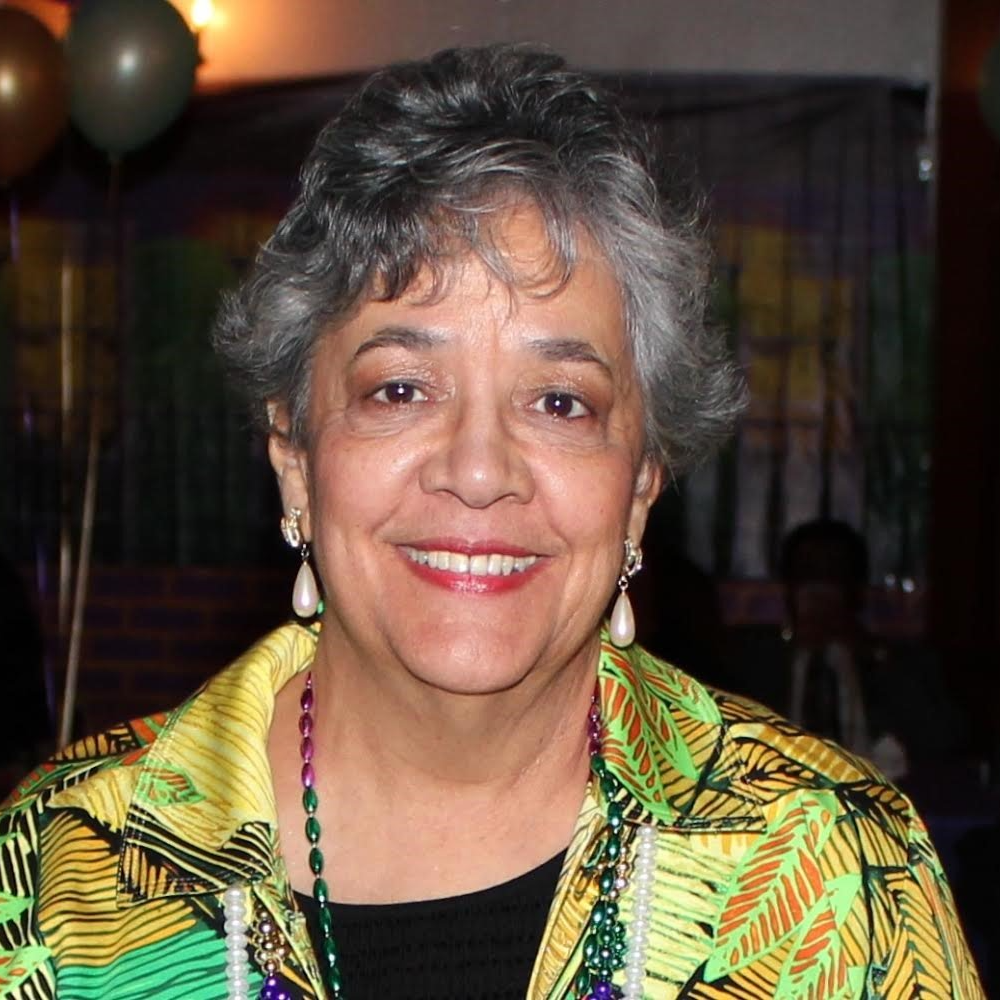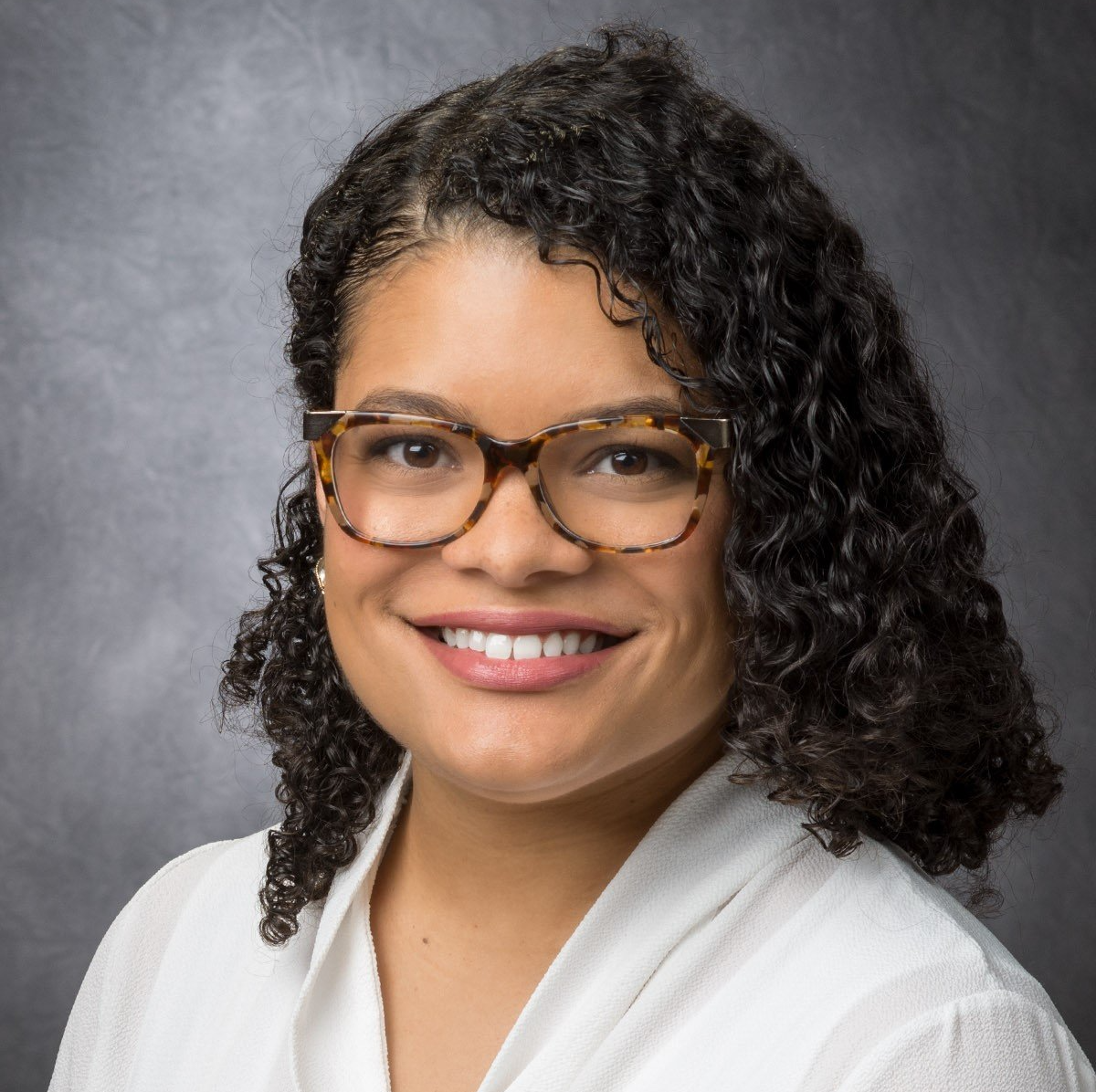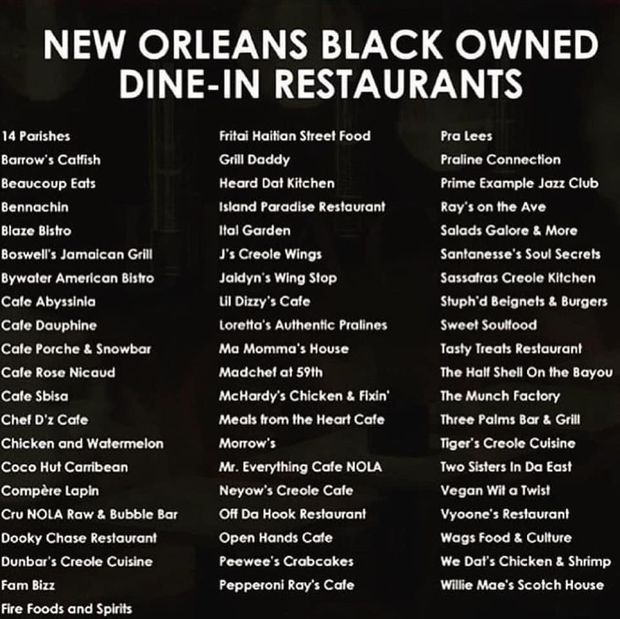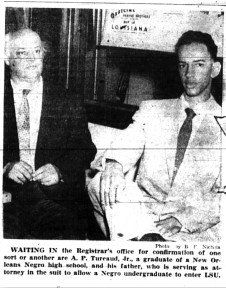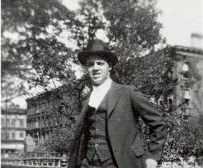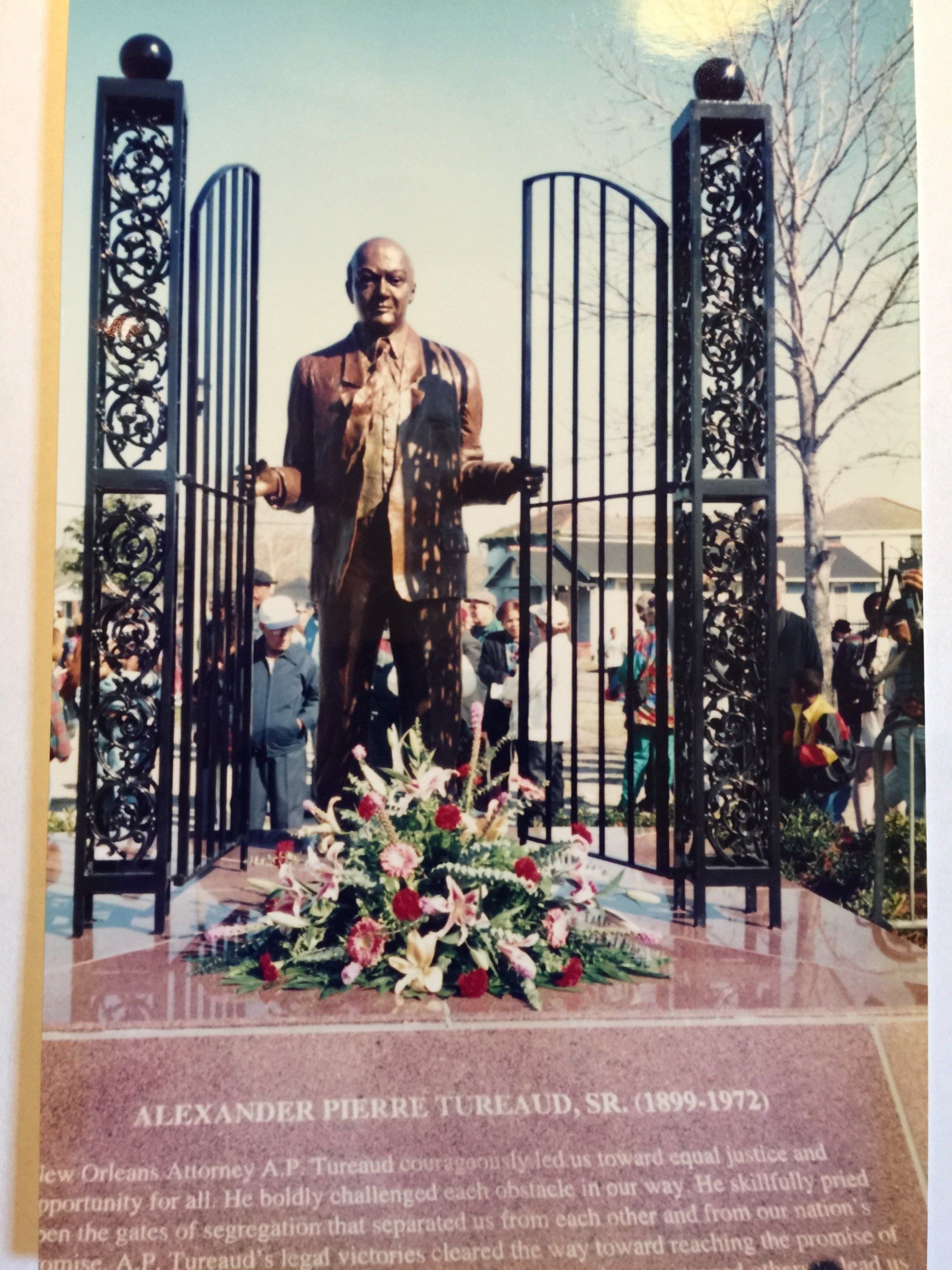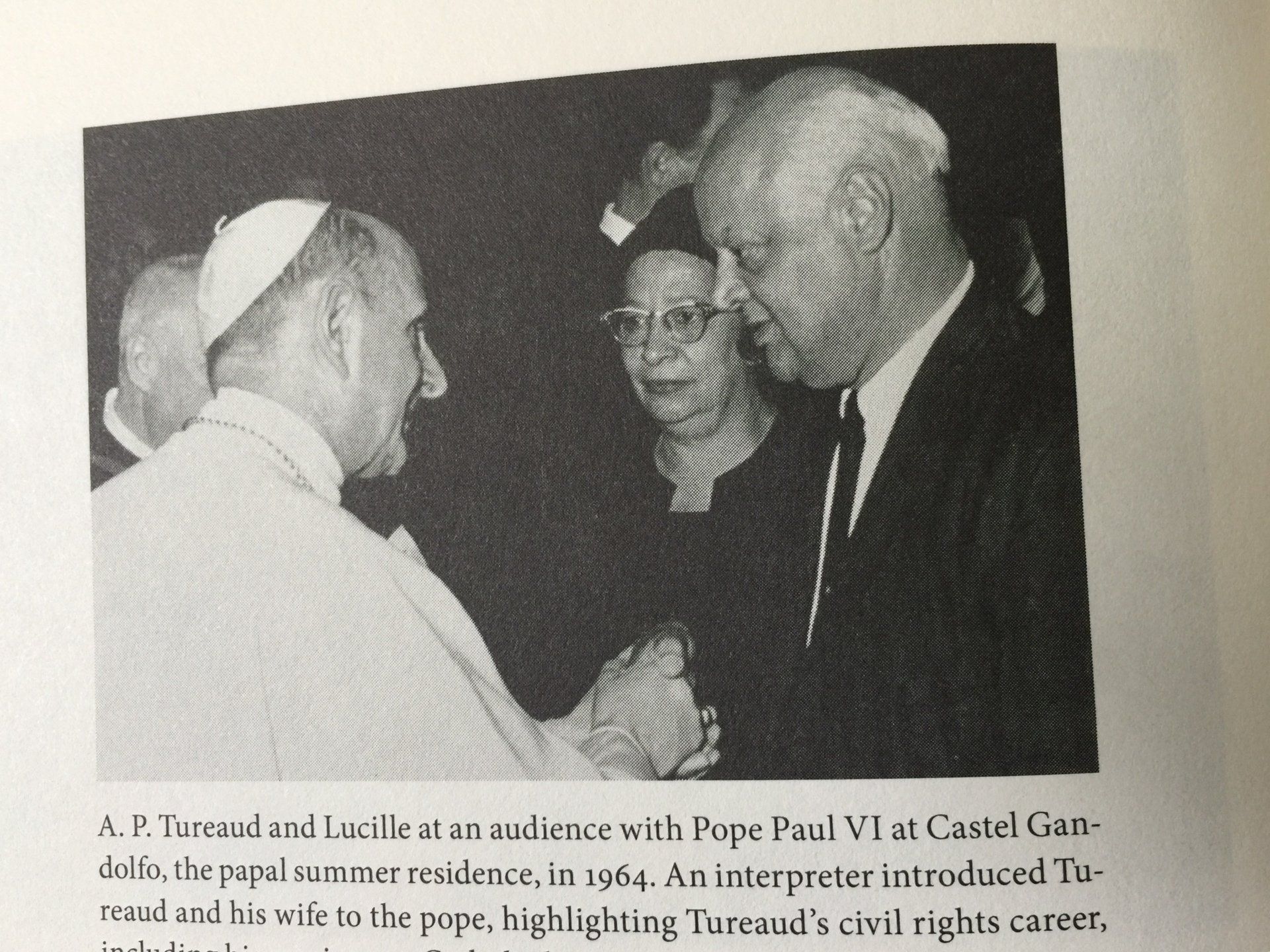President Mark Raymond Jr. started the petitions to change both street names following the murder of George Floyd and ensuing nationwide protests. Mark is a proud Xavier University graduate, great grandson of A.P. Tureaud Sr., a devoted New Orleanian, and advocate for people living with paralysis.
#STREETSIGNSMATTER
#StreetSignsMatter is a movement to erase our streets of figures in history who fought to enslave and oppress Black people.
JOIN THE MOVEMENTJefferson Davis Parkway will become Norman Francis Parkway
READ MORE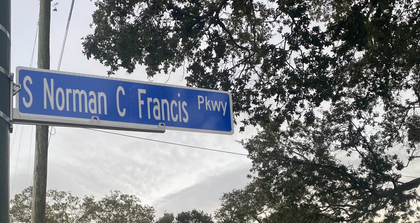
Photo By: Sarah Ravits
rename ROBERT E LEE BLVD to LEAH CHASE BLVD
MAP KEY
| 1 | Robert E. Lee Boulevard | General Robert E. Lee was commander of the Confederate Army during the Civil War. He has no direct ties to New Orleans, but his statue was among the most prominent in the city. |
|---|---|---|
| 2 | Lee Circle | |
| 3 | Walker Street | General John George Walker led Confederate troops in battles throughout Louisiana and Arkansas. |
| 4 | Jefferson Davis Parkway | Before becoming the first and only president of the Confederate States of America, Davis was a U.S. Senator from Mississippi, where he owned a cotton plantation and more than 100 enslaved people. We want to rename Jefferson Davis Parkway for Norman C. Francis who was a civil rights leader and served as the president of Xavier University for 4 decades. |
| 5 | Jefferson Davis Memorial | |
| 6 | Mouton Street | General Alfred Mouton, son of a Louisiana governor, was an engineer in New Orleans and sugarcane farmer before joining the Confederate war effort. |
| 7 | Lane Street | General James Henry Lane served under Stonewall Jackson and fought in the Battle of Gettysburg. |
| 8 | Polk Street | General Leonidas Polk fought for the Confederacy and served as Episcopal Bishop of Louisiana. |
| 9 | General P.G.T. Beauregard | Born in St. Bernard Parish, Beauregard ordered the first shots of the Civil War at Fort Sumter. Beauregard also pushed for the army to use a different flag from the Confederate national flag because its “stars and bars” looked so similar to the U.S. flag. It resulted in the X design with stars, which is now at the center of controversy. |
| 10 | Beauregard Avenue | |
| 11 | Beauregard Drive and Lee Street | Within Jackson Barracks, two streets are named after Confederate generals: P.G.T. Beauregard and Robert E. Lee. |
| 12 | Governor Nicholls Street | Francis T. Nicholls was a brigadier general in the Confederate Army. |
| 13 | General Albert Pike | Pike practiced law in New Orleans before joining the Confederate army. |
| 14 | Rev. Abram Joseph Ryan | Ryan was called the “Poet-Priest of the South” and the “Poet Laureate of the Confederacy.” |
| 15 | Col. Charles Didier Dreux | Dreux was the first Confederate field officer killed during the Civil War. |
| 16 | Forshey Street | As an engineer, Caleb Goldsmith Forshey worked with the Confederate Engineering Corps to help fortify gunboats. |
| 17 | General Ogden Street | Frederick Nash Ogden led Louisiana’s 9th Cavalry and fought in the Battle of Vicksburg during the Civil War. |
| 18 | Calhoun Street | While John C. Calhoun didn’t fight in the Civil War, he was among the antebellum period’s foremost advocates of slavery and secession. |
| 19 | Gen. Taylor Street | Gen. Richard Taylor, son of President Zachary Taylor, was a prominent plantation owner before the war. He led Confederate troops in a number of Louisiana skirmishes. |
| 20 | Confederate Flag Etching | An engraving near the entrance to New Orleans City Hall depicts a scene with a Confederate flag. |
| 21 | E.D. White | Edward Douglas White was a Supreme Court Chief justice who served the Confederate Army and was a member of the Crescent City White League. His statue sits in front of the Louisiana Supreme Court building on Royal Street in the French Quarter. |
| 22 | Washington Artillery Park | A plaque at the base of the Washington Artillery Park cannon monument lists its engagements including that it “served the Confederacy in two theaters of the war". |
| 23 | Battle of Liberty Place Monument | The monument commemorates the 1874 clash between ex-Confederates in the Crescent City White League and the Reconstruction government. It was moved in 1989 from its original spot on Canal to the river end of Iberville Canal Place. |
| 24 | Capdeville Street | Named for Mayor Paul Capdeville, a Confederate veteran. |
| 25 | Slidell Street | Named presumably for John Slidell, the Confederate government’s ambassador to France who was famously taken captive in the Trent affair. |
| 26 | General Meyer Avenue | Adolph Meyer served in the Confederate Army from 1862 through the end of the Civil War. |
| 27 | General Early | Gen. Jubal Early fought in several key Civil War battles, including Bull Run, Antietam and Fredericksburg. |
| 28 | Lafayette Cemetery No.1 | A marker, placed in 1970, notes the cemetery is the burial site of Gen. Harry T. Hays, ”distinguished Confederate General.” |
| 29 | Bragg Street | Gen. Braxton Bragg trained Confederate soldiers in the Gulf Coast and later served as superintendent of New Orleans waterworks. |
| 30 | Palmer Park | Pastor Ben Palmer’s Thanksgiving Sermon in 1860 is cited as a chief influence on Louisiana leaders to join the Confederacy. In it, he defended slavery and endorsed secession. |
Mayor Cantrell and Mark Raymond Jr. Talk renaming our streets
ABOUT US
A.P. Tureaud Jr., Vice President
A. P. Tureaud, Jr. is an educational consultant, artist, and public speaker. Mr. Tureaud is a retired school administrator with more than 30 years serving the White Plains Public Schools, New York.
The first African-American student to attend undergraduate school at Louisiana State University in 1953 by court order, Mr. Tureaud was dismissed from LSU after only eight weeks. Mr. Tureaud earned a bachelor’s degree from Xavier University in New Orleans and a master’s degree from Columbia University in New York.
In 2011, Louisiana State University awarded Mr. Tureaud the honorary doctor of humane letters in the Spring Commencement.
Royce Duplessis, Esquire, President
Royce Duplessis was born and raised in New Orleans, LA. He is a graduate of Xavier University (B.A., 2004) and Howard University School of Law (J.D., 2010). Royce feels a personal indebtedness toward the late A.P. Tureaud, Sr., as he (like many others) is a beneficiary of Mr. Tureaud's numerous contributions to civil rights in Louisiana.
Elise Tureaud Nicholls, Secretary
Elise Tureaud Nicholls was born in New Orleans, Louisiana, where she graduated from Xavier University Preparatory High School and earned a Bachelor of Science degree from Xavier University of Louisiana. After graduating from Xavier, Mrs. Nicholls completed a dietetic internship at Freedman’s Hospital, Howard University.
Over the ensuing years, some of the organizations that she has been involved with include: Operation Crossroads Africa; Alpha Kappa Alpha Sorority, Inc.; Xavier University National Alumni Association; Washington Inter-Alumni Council-UNCF; National Alumni Council-UNCF; American Dietetic Association; East River Family Strengthening Collaborative Inc.; Legal Defense Fund, Inc.; and the NAACP. She currently is the director of a Senior Wellness Program in Washington, DC.
As a Board Member of the A.P. Tureaud, Sr. Legacy Committee, Mrs. Nicholls hopes to advance the awareness and need for continued diligence in securing civil and social justice for all and to secure scholarship funds for aspiring law school students.
Katherine Hurst
Katherine Hurst is a Licensed Master Social Worker with experience as a direct practice provider as well as public health and research experience.
Katherine's education and passion serve as her drive for seeking social justice and promoting change initiatives. In her professional roles she has worked with adolescents seeking higher education, survivors of domestic violence and sexual assault, and patients whose lives have been altered due to a cancer diagnosis. She knows that vulnerability and empathy are our greatest strength as human beings. Katherine has been a champion of equity for all.
